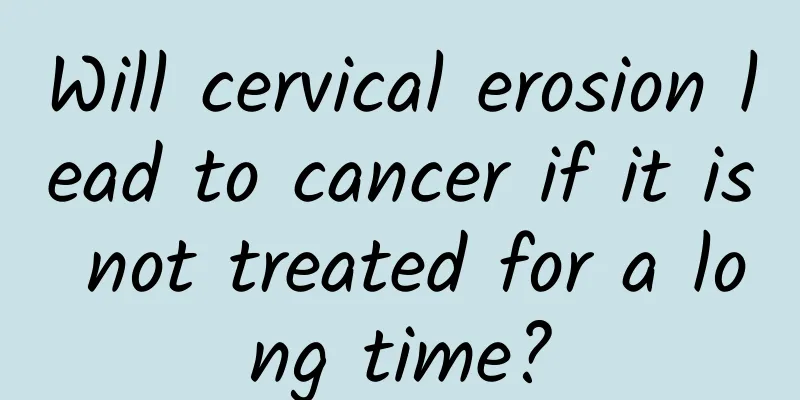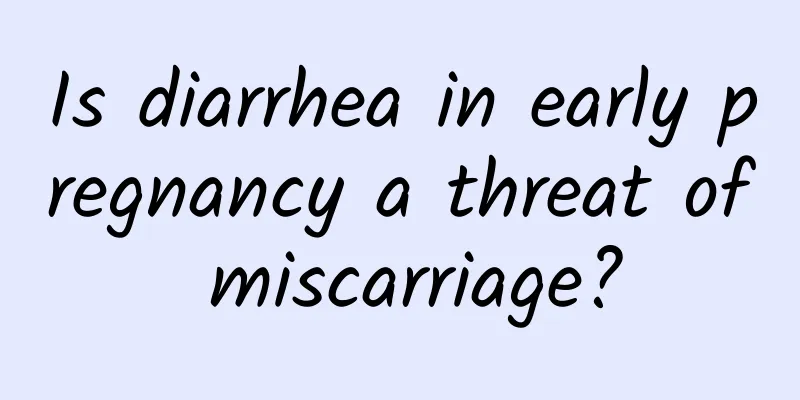Will cervical erosion lead to cancer if it is not treated for a long time?

|
Long-term untreated cervical erosion may increase the risk of cervical cancer, but it does not directly cause cancer. Cervical erosion is a common gynecological phenomenon, usually related to changes in hormone levels, infection or inflammation. If left untreated for a long time, it may cause chronic inflammation, increase the risk of abnormal cervical cell proliferation, and may develop into cervical cancer. 1. Causes of cervical erosion Cervical erosion is mainly related to the following factors: First, changes in hormone levels, such as increased estrogen levels may cause the outward migration of the cervical columnar epithelium; second, infection, such as human papillomavirus (HPV) infection, bacterial or fungal infection; third, chronic inflammation, such as long-term unhealed cervicitis; fourth, mechanical stimulation, such as frequent sexual intercourse or childbirth injuries. 2. Treatment of cervical erosion Treatments for cervical erosion include medication, physical therapy, and surgery. Medication can use antibiotics such as metronidazole, antifungal drugs such as fluconazole, or antiviral drugs such as interferon. Physical therapy includes laser therapy, cryotherapy, and microwave therapy, which promote the regeneration of healthy tissue by destroying abnormal tissue. Surgical treatment is suitable for severe cases, such as cervical conization or LEEP knife surgery. 3. Measures to prevent cervical cancer The key to preventing cervical cancer is regular screening and early intervention. It is recommended that women undergo cervical cytology TCT and HPV testing once a year to detect abnormalities in a timely manner. HPV vaccination can effectively prevent high-risk HPV infection. Maintaining good living habits, such as quitting smoking, eating a balanced diet, and exercising moderately, can help enhance immunity and reduce the risk of disease. Cervical erosion itself is not cancer, but long-term untreated may increase the risk of cervical cancer. Timely treatment and regular screening can effectively reduce the incidence of cervical cancer. Women should pay attention to gynecological health and take active preventive measures to ensure early detection and treatment of potential problems. |
<<: How to treat functional uterine bleeding
>>: What causes functional uterine bleeding and how to treat it
Recommend
How much does it cost to cure Bartholinitis?
How much does it cost to recover from Bartholinit...
What medicine is effective for cervicitis
The treatment of cervicitis requires comprehensiv...
What to do if you have back pain during menstruation? Tips to quickly relieve back pain
Some female friends have experienced back pain du...
Irregular vaginal bleeding is one of the early symptoms of ectopic pregnancy
For pregnant women, ectopic pregnancy has a great...
Radiotherapy for cervical erosion
If it is found that it is just simple cervical er...
Genes are the main cause of ovarian cysts
Ovarian cysts bring a lot of unspeakable pain to ...
Treatment of Trichomonas vaginitis
The pathogen of this disease is Trichomonas vagin...
What should I do if my period doesn’t come at 48? Isn’t it menopause?
What should I do if my period doesn’t come at 48?...
Introducing the symptoms of chronic adnexitis
Among the many common gynecological diseases, adn...
How to classify the severity of adenomyosis
How to classify the severity of adenomyosis? 1. F...
What are the treatments for uterine fibroids?
Uterine fibroids are the most common benign tumor...
Experts explain the nursing knowledge of chronic pelvic inflammatory disease
Scientific care for chronic pelvic inflammatory d...
People with hunchbacks should not eat spicy food! Adjust your diet to change 3 abnormal body shapes
You can tell what's wrong with a person by lo...
Can I have sex if I have pelvic peritonitis?
Can you still have sex if you have pelvic periton...
What can I eat to regulate my irregular menstruation?
Irregular menstruation is a common gynecological ...









